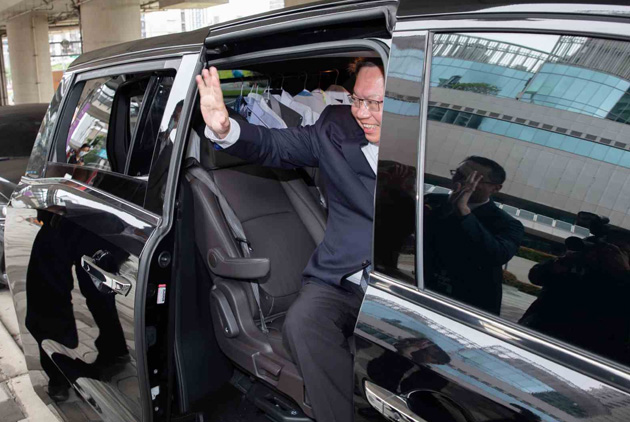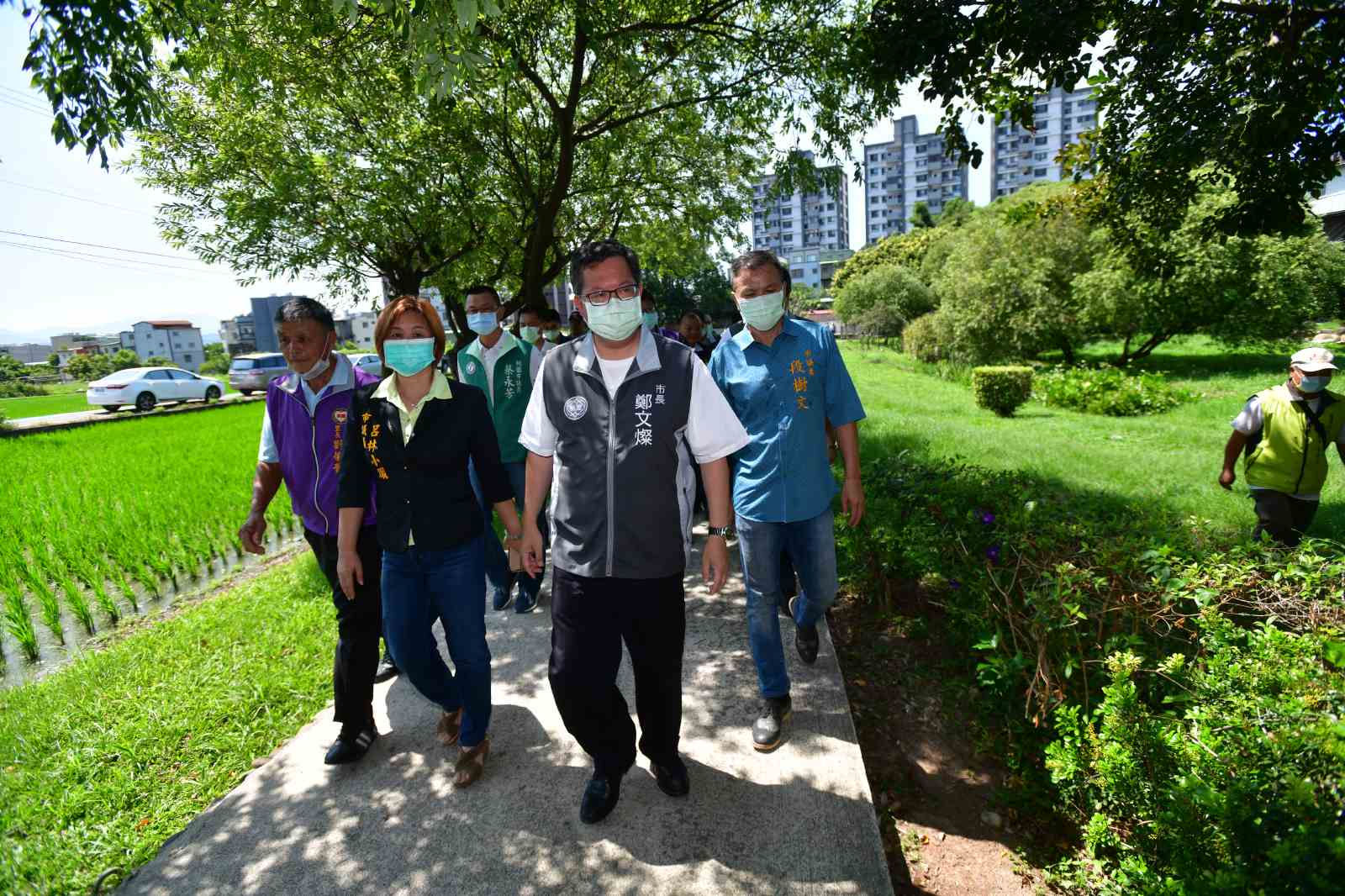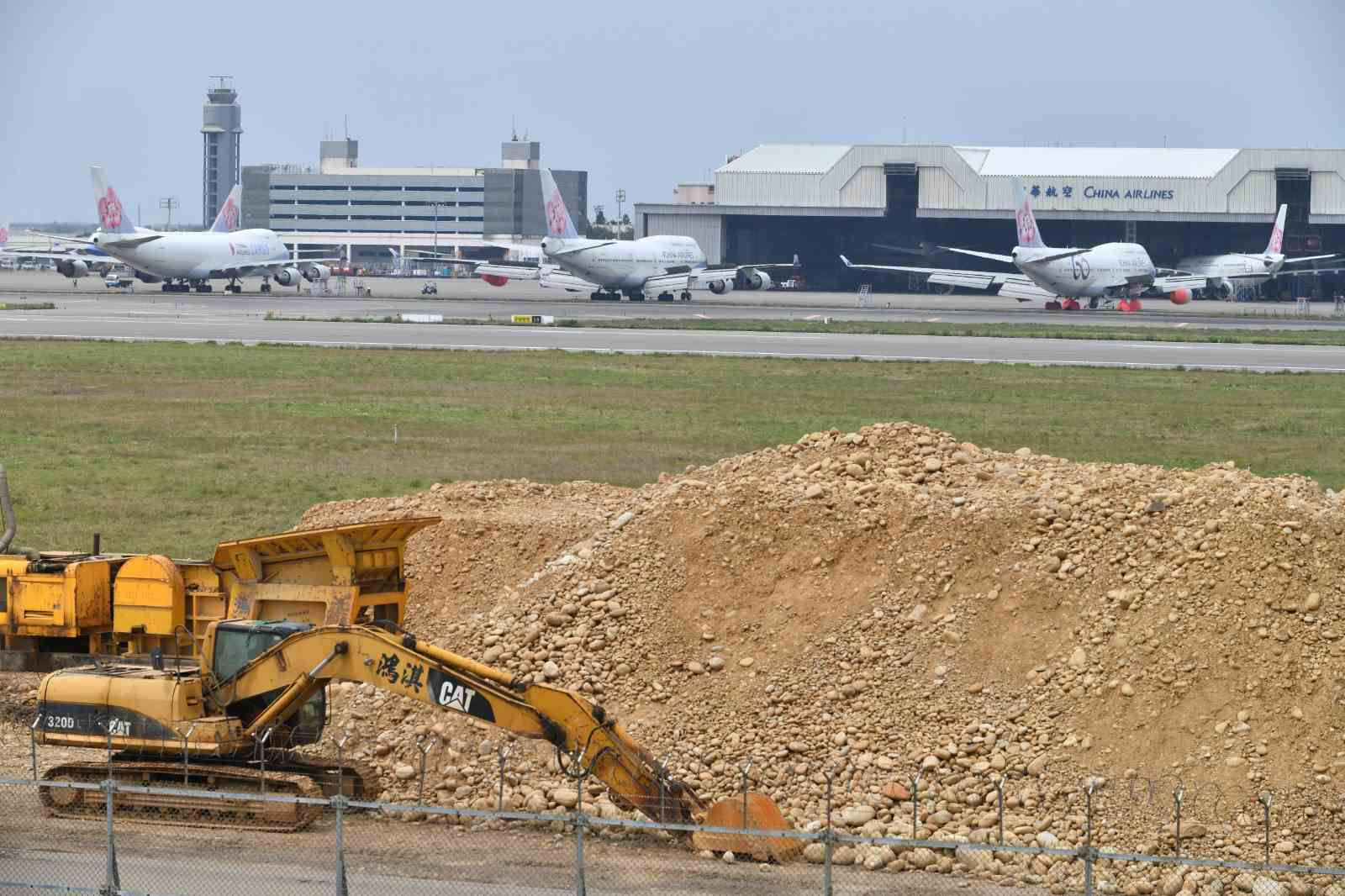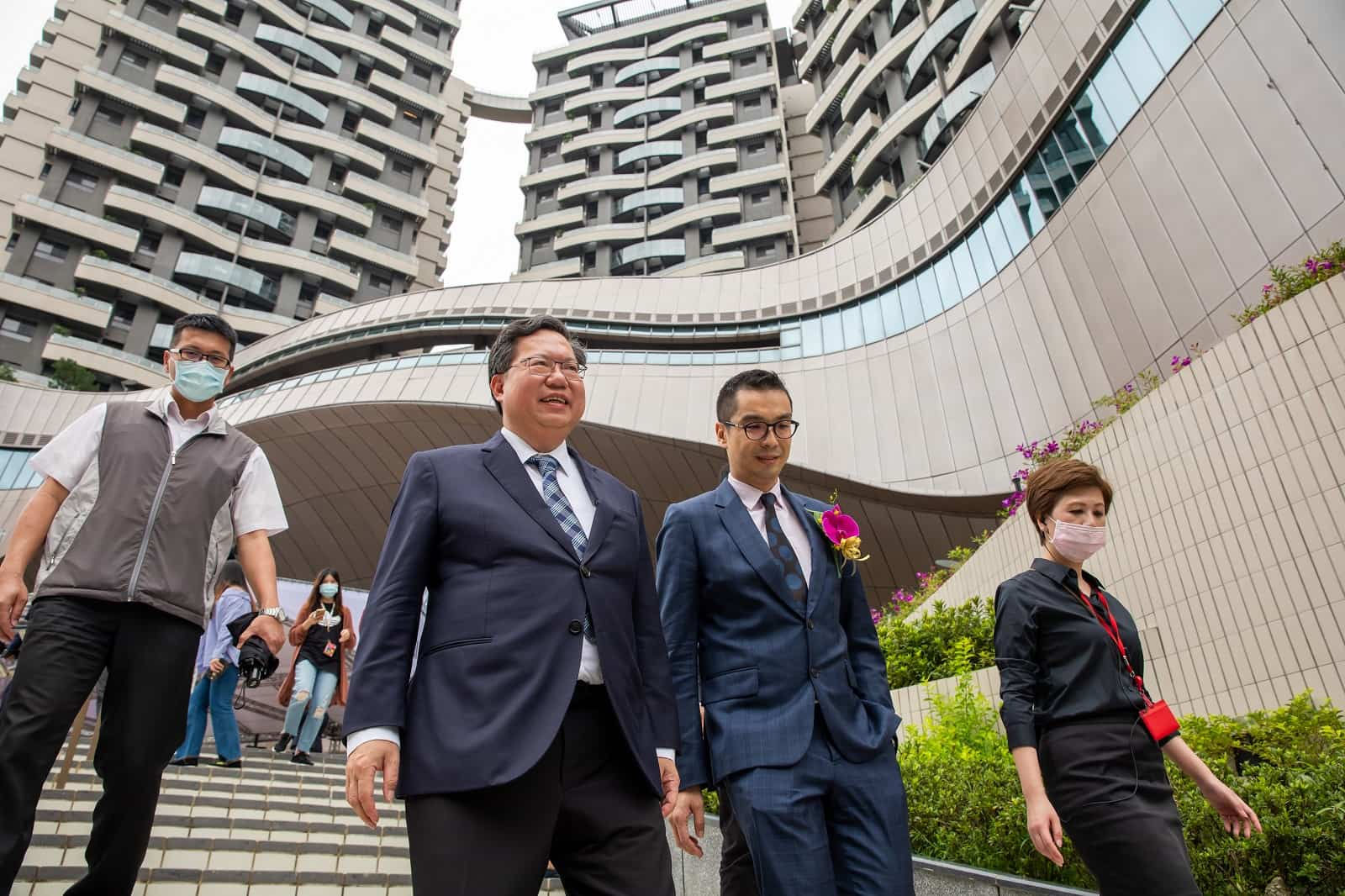Can the DPP’s Favorite Son Bring Glory to Taoyuan?

Source:Chien-Ying Chiu
Taoyuan Mayor Cheng Wen-tsan is no stranger to failure; he has lost his share of elections. But during the seven years he has been in office, his approval rating has climbed steadily, reaching number three in this year’s poll. Investment and infrastructure in Taoyuan are picking up. Cheng knows to tread softly. Only by winning the support of both blue and green voters can the DPP’s favorite son achieve loftier ambitions.
Views
Can the DPP’s Favorite Son Bring Glory to Taoyuan?
By Rebecca Lin and Li Hsun TsaiCommonWealth Magazine
Sometime this August, Premier Su Tseng-chang took Minister of Transportation and Communications Lin Chia-lung to Taoyuan to survey the relocation of the above-ground railway lines to underground tunnels. He publicly announced that the central government would put NT$78.6 billion toward the make-over of Taoyuan’s traffic systems.
As things stand, Taoyuan is on its way to glory. Much-needed infrastructure projects, such as the long-stagnant “Taoyuan Aerotropolis” and the relocation of aboveground railroads, are finally beginning to pick up.
Cheng Wen-tsan is in his seventh year as Mayor of Taoyuan. The media have already tagged him the heir apparent to President Tsai Ing-wen.
The prevalent public opinion of Cheng is a man with no rough edges, a friend to all. But there is always a sense of uncertainty about him.
When CommonWealth asked him to describe himself, he said, “I’m a mayor of the people,” adding, “My constituents know I can read their minds. I only have to look into their eyes to understand what they want.”

Photo by Kuo-Tai Liu
Whether he can really read minds is up for debate. But there is no question that the man understands politics.
In 2009, then-DPP Chair Tsai pushed him to the front line. Cheng, a man whose family did not have a political background and who lacked party support, was tasked with running for magistrate. He campaigned from six in the morning until midnight every day for 58 days. He still lost the election by a slim margin of 50,000 votes. In 2012, Cheng ran for legislator, but again he tasted defeat. It was not until 2014 that Cheng became Magistrate of Taoyuan County, besting incumbent Wu Chih-yang by less than 30,000 votes.
Su has described Cheng as “hardy”. “I’ve tasted the bitterness of life; I know what the real world is like,” says Cheng. His father was a minor public servant, his mother a factory worker. He was one of seven kids. Cheng worked his way from primary school to high school.
Even in the 2009 election, he was not respected. Moderators introduced Wu as “the next Magistrate” while Cheng was simply “Mr. Cheng Wen-tsan”.
At the time, he had already been the Director-General of the Executive Yuan’s Government Information Office, the DPP Spokesperson, and the national spokesperson for Frank Hsieh and Su Tseng-chang’s presidential campaign. He thought he was a household name; his electoral defeat showed otherwise.
Perhaps because he learned firsthand the weight and weightlessness of power, he treats every day of his mayorship as if it were his last.
“You cherish the lessons learned through defeat.” Cheng never stopped campaigning, even after he became mayor. He has walked every inch of Taoyuan. Even the remote Fuxing District is a place he has visited a hundred times. To this day, he has a dozen places to go even on holidays.
He knows too well: “I won my first term with 51% of the votes (and 53% for the second term). Half of the city is skeptical about me. I need to work on earning their trust. So I go all over Taoyuan.”
No glad-handing event is too small for him. Not long ago, he went to an elderly care clinic. There were only a dozen or so senior citizens there, but he went around shaking hands. “Sometimes, when his schedule is too packed, he just grabs a quick lunch with his driver and attendees. He doesn’t put on airs,” says an official at City Hall.
Because he is one of the few mayors who’s served as a city council member, he understands how to work in a committee. His principle is “dialogue over diatribe”. Therefore, though the City Council is more blue than green, he is able to maintain harmony between them and City Hall.
When Santa Claus Comes to Taoyuan
Cheng is heavyset and good at spreading resources around. Some people joke that he’s actually Santa Claus. In Taoyuan, everyone enjoys welfare, from the cradle to the grave. There are maternity pensions and parental subsidies. The elderly get dentures on the government's dime and financial gifts during Taiwan’s three major holidays. They also get premium subsidies along with their National Health Insurance. Cheng doesn’t skimp when it comes to splurging for the public good. If anything, he doubles down.
During his first term, he focused on improving quality of life. All his policies were aimed at making a tangible difference. The “Taoyuan Citizen Card” comes with more than 30 benefits. He also built sidewalks, bicycle lanes, and public housing.
In order to transform Taoyuan from a satellite city into a modern metropolis, Cheng revamped the sewage and railway systems. He connected Taoyuan to the Greater Taipei Area with a railroad and three subway lines. Now, along with Keelung and Taipei, Taoyuan is part of the northern urban center, where every district can be traveled to within an hour. Not only does Taoyuan shine, the whole country has become more competitive on the global stage as a result.

Photo by Kuo-Tai Liu
Other projects still in progress include the new public library, the Taoyuan Convention and Exhibition Center, the Museum of Fine Arts, and the Asia Silicon Valley Innovative R&D Center. But everything comes with a price. Even if the railway project received a total of 400 billion dollars in subsidies from the central government, the local government still needs to secure funds to fuel their aspirations.
“Infrastructure” is an investment in the future, but a breadwinner knows to watch the budget.
A look at Taoyuan’s ledger reveals that the city was 26.2 billion dollars in debt when Cheng assumed office. As of this August, the sum stands at 48 billion, which is still the lowest among the six special municipalities, and only half of what Taipei owes. Taoyuan also foots the majority of its own bills; at 55.9%, it is just a bit lower than Taipei’s 66.4% and New Taipei’s 57.9%. All in all, Taoyuan is doing quite well for itself.
Don’t Shout, Stand Your Ground
“Taoyuan is a growing city. Lots of rezoning means lots of taxes. They don’t have a debt problem, so they are free to spend as they see fit,” says Yu-tzung Chang (張佑宗), Chairperson of the Department of Political Science and Associate Dean of the College of Social Science at National Taiwan University. A growing population comes with its own benefits. A developing city naturally has room to take care of more citizens.
“Any local government faces money problems. Infrastructure and welfare must be worth the money; we know our limits.” But Cheng also realizes that: “We must focus on fiscal management. The population is expanding, so welfare expenses will only go up.”

Photo by Chien-Ying Chiu
On the other hand, though public opinion mostly commends him for “aligning policies with public interest”, the vagueness of the term “public interest” has some critics doubting Cheng’s guts and resolve. “Even at the local level, the value of the administration must be clear. Every policy proposed should bring value in return.”
For example, the “Taoyuan Aerotropolis” project has led to the most massive expropriation of land in Taiwanese history. Environmental organizations criticize the local government for gobbling up farmland for urban development.
They fear it will go the way of many failed infrastructure projects that came before. More than 8,000 households will be forced to move because of the government’s initiative. Any misstep will lead to protests and blowback.
“A leader must have the courage to stay true to their vision.” From the start, Cheng insisted on public hearings so that a consensus might be reached through participatory democracy. He also believes in “build first, relocate later”. Citizens who are being forced to move must be well taken care of before any construction can start. “People’s rights should not be sacrificed for infrastructure.”
Today’s Cheng Wen-tsan may be the best hope for the Democratic Progressive Party.
His long years with the DPP have not only afforded him the chance to learn from those who lead, they have also shown him the ugly face of infighting within the party. Cheng will not forget what he has seen.
“With great responsibility comes the seduction of power and pressure from the populace. We need to treat this with care.” Cheng knows these traps await any statesman who comes to power. “Therefore, true leaders think rationally about problems instead of bending to populism, and they always remind themselves not to overstep their boundaries.”
The recent controversy about the importation of US pork is a good chance for the DPP to stop and reflect.
Besides being “the adult in the room”, Cheng is also exploring his personal vision and influence. When the central government decided to ease restrictions on importing American beef and pork, many local leaders rebelled. Cheng drew on his experience of visiting the United States twice as an elected official and reached his own conclusion. The United States does not see the issue of pork as purely one of monetary interests, but rather of principle: if Taiwan wants to be invited to the negotiating table, there are certain “rules” it needs to play by.
Cheng sees a “window of opportunity” in the U.S.-Taiwan relations. “I must confess that my own party has politicized the issue of food safety in the past. In fact, we didn’t know when to stop. We should do some soul-searching, and maybe even apologize,” Cheng says.
He also stresses that at the current stage of Taiwan’s democratization, we need to go beyond petty squabbles between the blue and green camps. There is no reason to be at loggerheads over US pork or beef. Both parties should cool down and think about what’s truly best for the future of Taiwan.
This may be a question for the ages. What is best for Taiwan is something politicians should always be thinking about, because the people they serve are still looking for an answer.
Have you read?
♦ Local Leaders Approval Survey Hints at Taiwan’s Future
♦ CommonWealth City Happiness Survey Taipei Retains Top Spot, So Why Are People Leaving?
♦ Chen Chien-jen: Solidarity the Key to Taiwan’s Successful Pandemic Fight
Translated by Jack Chou
Edited by TC Lin
Uploaded by Penny Chiang






